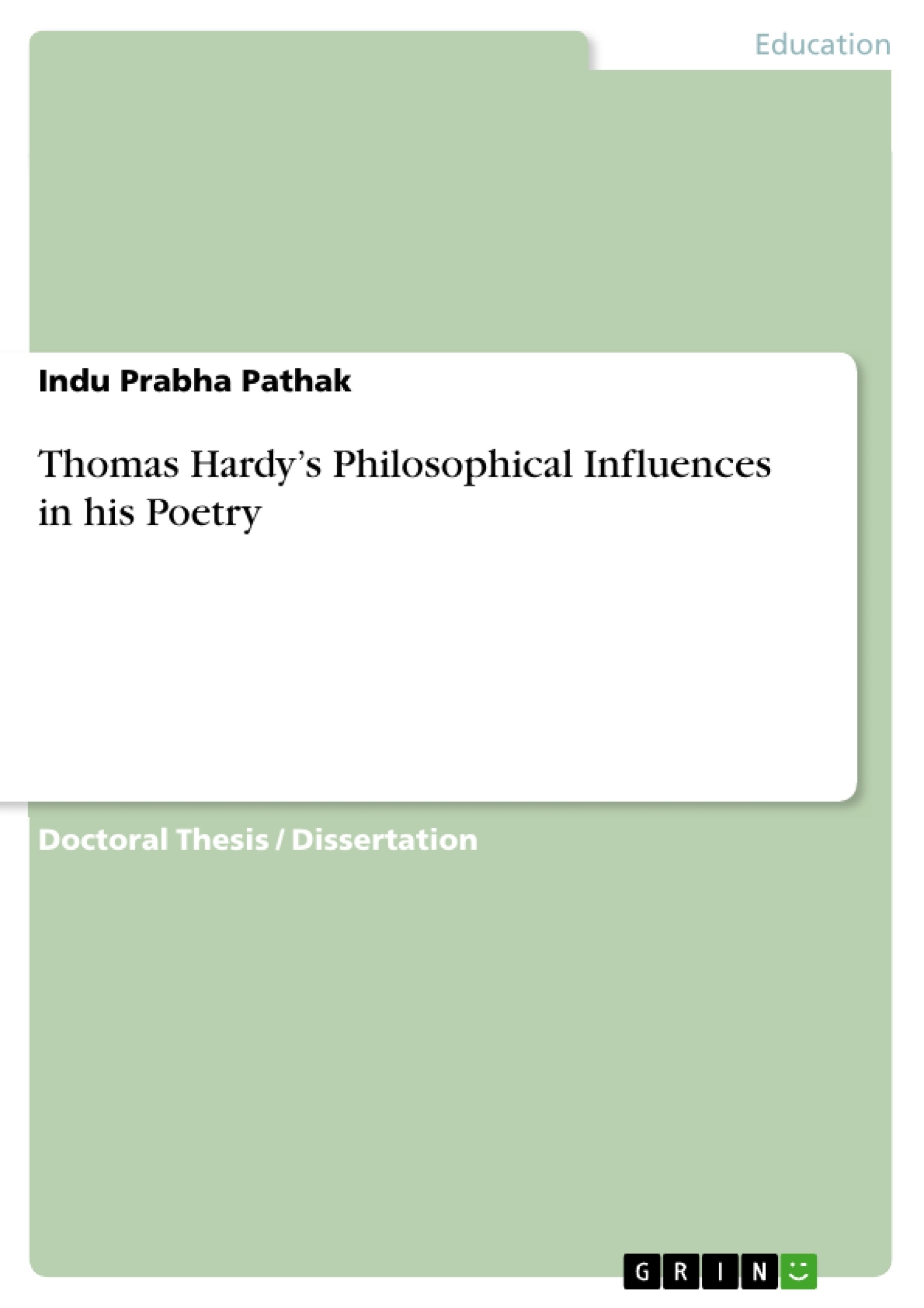Thomas Hardy the reputed novelist, poet, playwright and story writer has made his presence felt in the literary arena in an emphatic manner. The aim of this study is to draw a new light in his poetic oeuvre to illuminate those aspects of his vision which were hitherto less known. He is primarily known as a novelist par excellence producing a bulk of masterpiece novels in English. At the same time he has written almost 900 lyrics which stand as a testimony to his poetic genius.
In the words of Donald Davies, “In British Poetry of the last fifty years the most far reaching influence, for good and ill has been not Yeats, still less Eliot or Pound, not Lawrence, but Hardy.” (Davies 3)
Poetry always remained very close to his heart. He primarily conceived himself as a poet. He himself confessed it: In fiction he felt, he was merely “holding his own”; poetry he said was the more individual part of his literary fruitage. He took up novel writing because he could not earn his livelihood as a poet and he returned to poetry as he had earned income from his novels. He agrees with Leslie Stephen who believes that: “The ultimate aim of the poet is to touch our hearts by showing his own.” (Qtd. in Harvey 228)
Hardy started writing poetry at the age of 55. At the end of 1898 he published his first volume Wessex Poems which gained mixed critical reception. Friends like Swinburne and Leslie Stephens gave it a warm response. But at the same it produced acrimony in his married life that resulted in his estrangement with wife Emma to that extent that they lived apart with no children in the same house.
Three years after the appearance of Wessex Poems Hardy was ready to publish his second volume of verses which he named as Poems of the Past and the Present (1901) containing 99 poems. The first group of poems was titled as War Poems which established him as the first major “War poet” of the 20th century. The poems were written in the context of Boer war and it’s aftereffects. The collection received a better response as compared to the previous one.
[...]
Table of Contents
- Chapter 1: Introduction
- Hardy's Humanistic Vision
- Religious Manifestations
- Aesthetic mode of Transcendence
- An Epistemological Perspective
Objectives and Key Themes
This study aims to illuminate lesser-known aspects of Thomas Hardy's poetic vision, moving beyond his renowned status as a novelist. It examines his poetic output through a new lens, exploring the philosophical influences that shaped his work.
- Hardy's Humanistic Vision
- Religious Manifestations in Hardy's Poetry
- Aesthetic Mode of Transcendence
- Epistemological Perspective in Hardy's Work
- Philosophical Influences on Hardy's Poetry
Chapter Summaries
- Chapter 1: Introduction
This chapter introduces Thomas Hardy as a multifaceted literary figure, highlighting his prolific novel writing alongside his significant body of poetic work. It contextualizes Hardy's poetic output within the broader landscape of British poetry, showcasing its influence and reception. The chapter delves into Hardy's personal life and his relationship with poetry, discussing his reasons for choosing novel writing as a source of income and his eventual return to his primary artistic passion.
- Hardy's Humanistic Vision
This section will explore Hardy's humanist perspective, focusing on his understanding of human nature, society, and the individual's place within the larger framework of existence. It will examine how his humanism is reflected in his poetic themes and characters.
- Religious Manifestations
This section will delve into the exploration of religious themes in Hardy's poetry. It will analyze his nuanced portrayal of faith, doubt, and the search for meaning in a potentially indifferent universe. It will explore the presence of religious symbols and imagery in his work, revealing their significance within the context of his philosophical outlook.
- Aesthetic mode of Transcendence
This section will examine Hardy's use of aesthetic principles as a means of achieving a form of transcendence. It will analyze how his poetry engages with concepts of beauty, form, and artistic creation to offer a sense of escape or spiritual elevation. The section will explore the relationship between Hardy's artistic vision and his broader philosophical outlook.
- An Epistemological Perspective
This section will explore Hardy's philosophical perspective on knowledge and the process of knowing. It will examine how his poetry engages with questions of truth, perception, and the limitations of human understanding. The section will analyze Hardy's use of language, symbolism, and literary techniques to convey his epistemological insights.
Keywords
The key terms and concepts explored in this study include Thomas Hardy, poetry, humanism, religion, aesthetics, transcendence, epistemology, philosophy, literary influences, romanticism, existentialism, and the relationship between art and life.
- Quote paper
- Indu Prabha Pathak (Author), 2013, Thomas Hardy’s Philosophical Influences in his Poetry, Munich, GRIN Verlag, https://www.grin.com/document/438031



